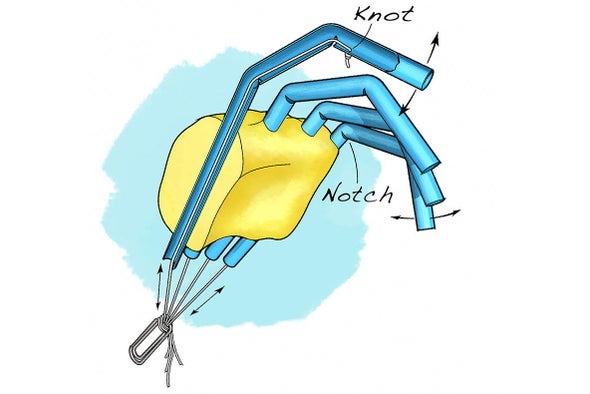 |
| April 01, 2022 |
 |
| Epidemiology What One Million COVID Dead Mean for the U.S.'s Future The country is about to reach an unthinkably grim milestone. Nearly 200,000 children have lost parents, many more elderly have been killed, and family well-being has been ripped apart By Melody Schreiber | |
| |
| |
| |
| |
| |
| |
| |
| |
| |
| |
| Neuroscience Does This Look like a Face to You? Science—and experience—show that we most definitely see faces in inanimate objects. But new research finds that, more often than not, we perceive those illusory faces as male. |  | By Karen Hopkin | 03:53 | | | |
| |
FROM THE STORE
 | | | |
| |
BRING SCIENCE HOME
 | | Build an Artificial Hand |  Build a working hand that you can control! What will you be able to pick up? Find out--and learn about engineering and anatomy--with this gripping activity! Credit: George Retseck | The human hand is pretty amazing. You can do things such as pick up a pencil, use a video game controller or climb a jungle gym without giving it much thought. Building a artificial hand that can do all those things quite a challenge! In this project you will try to build a simple artificial gripper that can pick up small objects. | |  | |
LATEST ISSUES
 |
| |
| Questions? Comments?  | |
| Download the Scientific American App |
| |
| |



